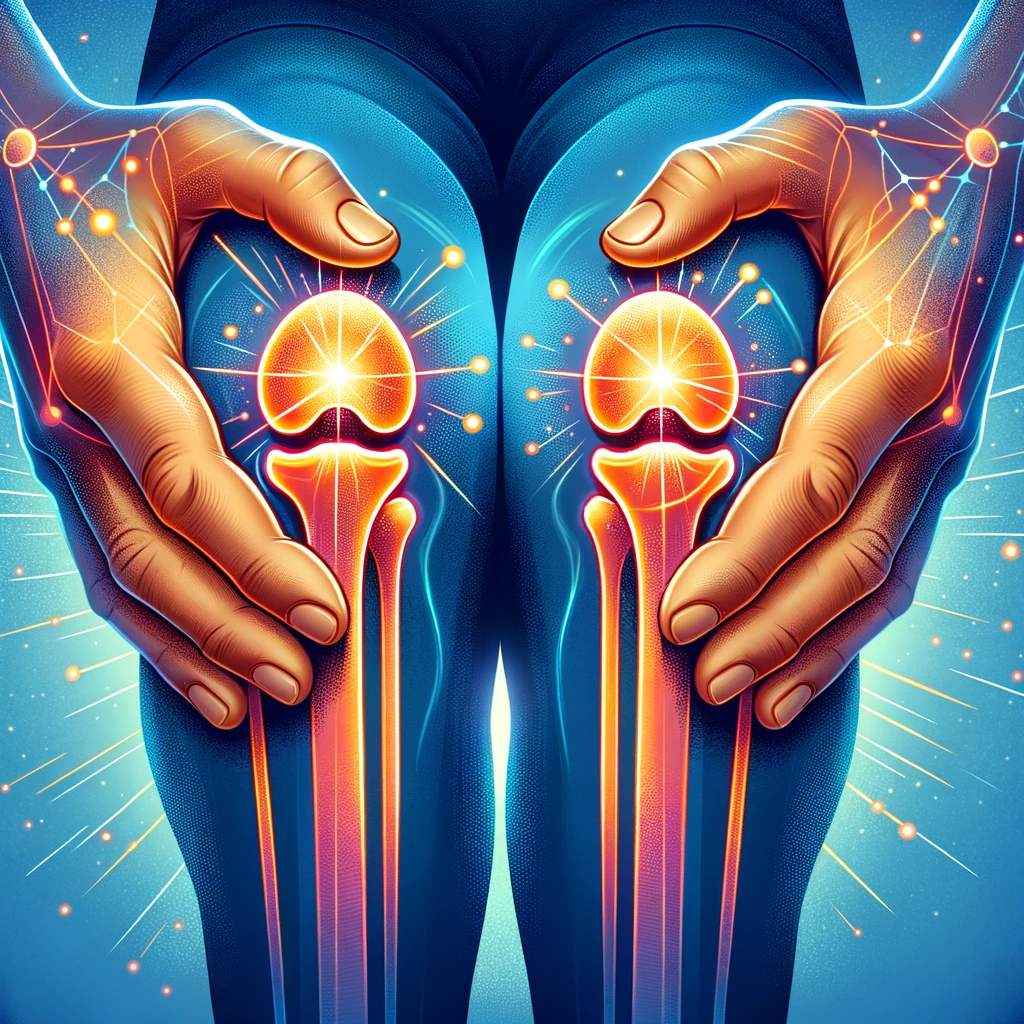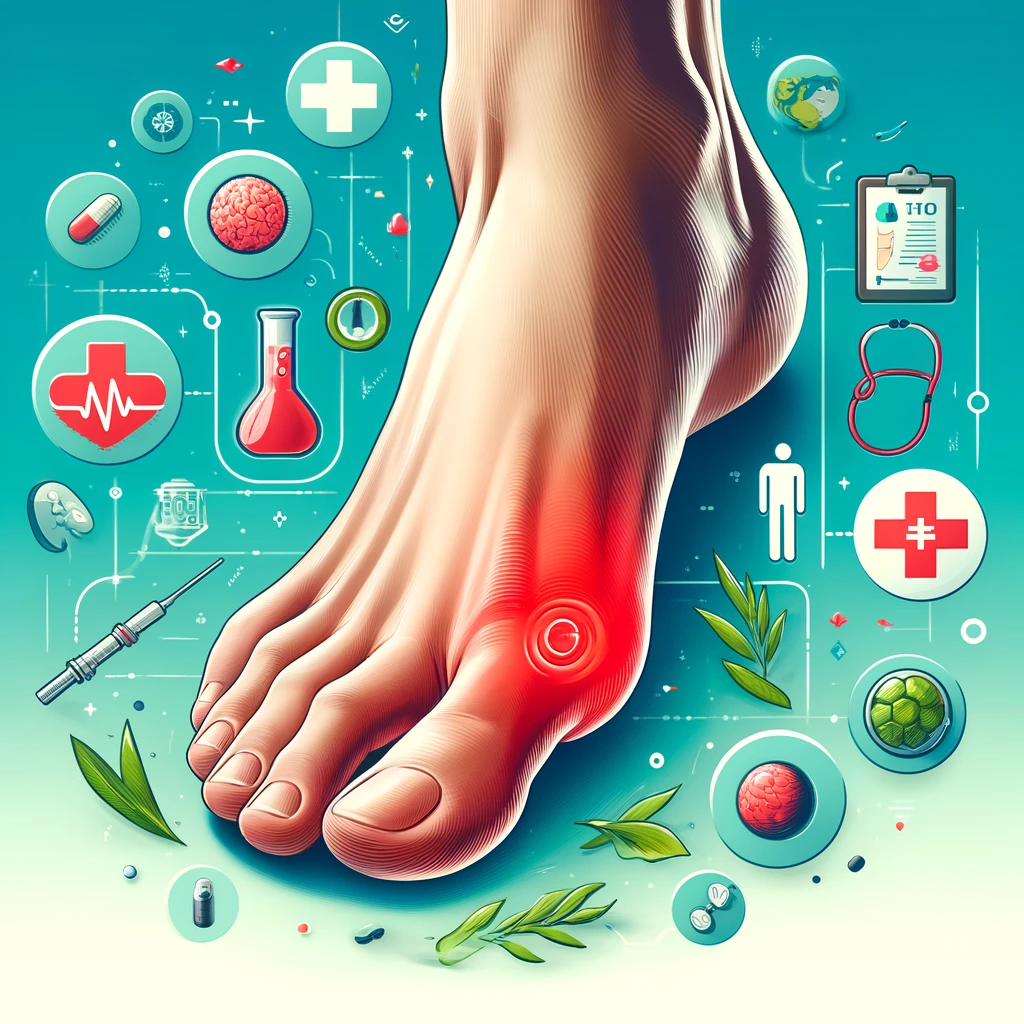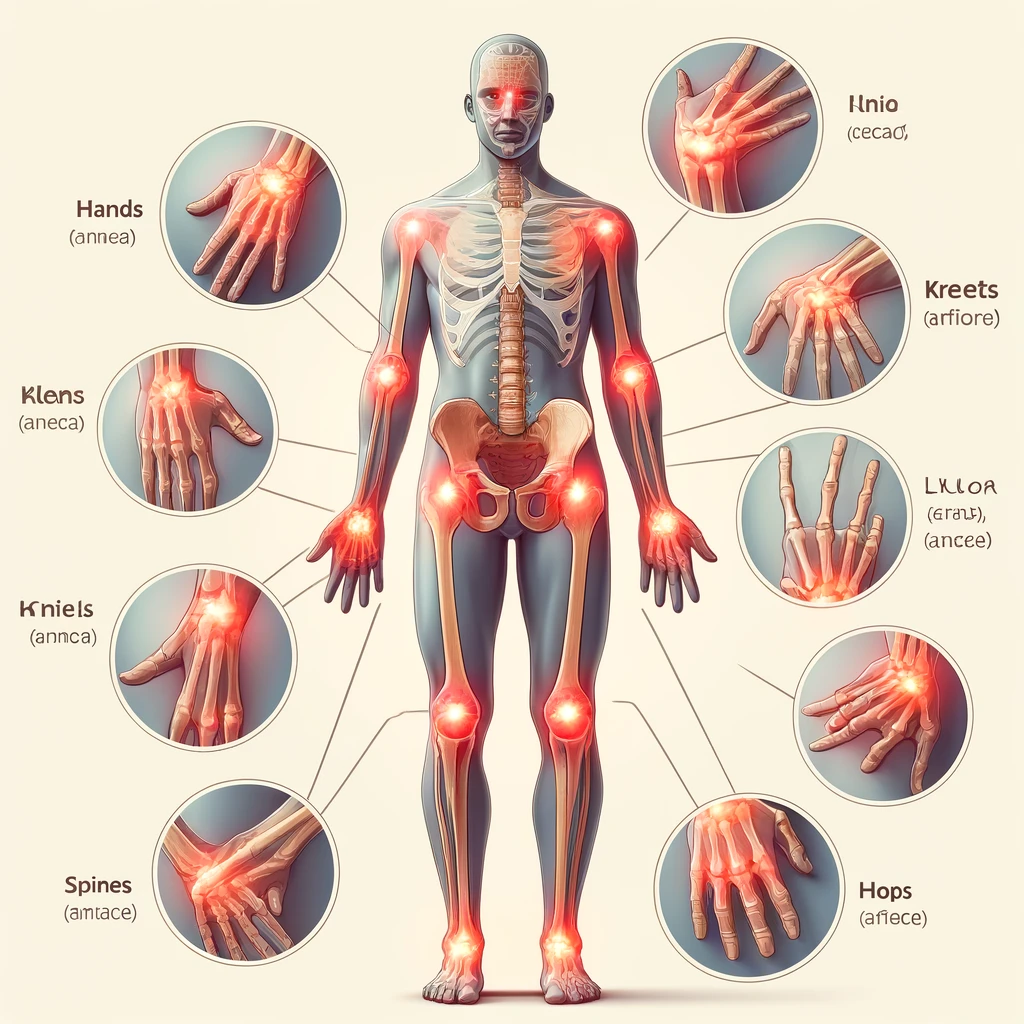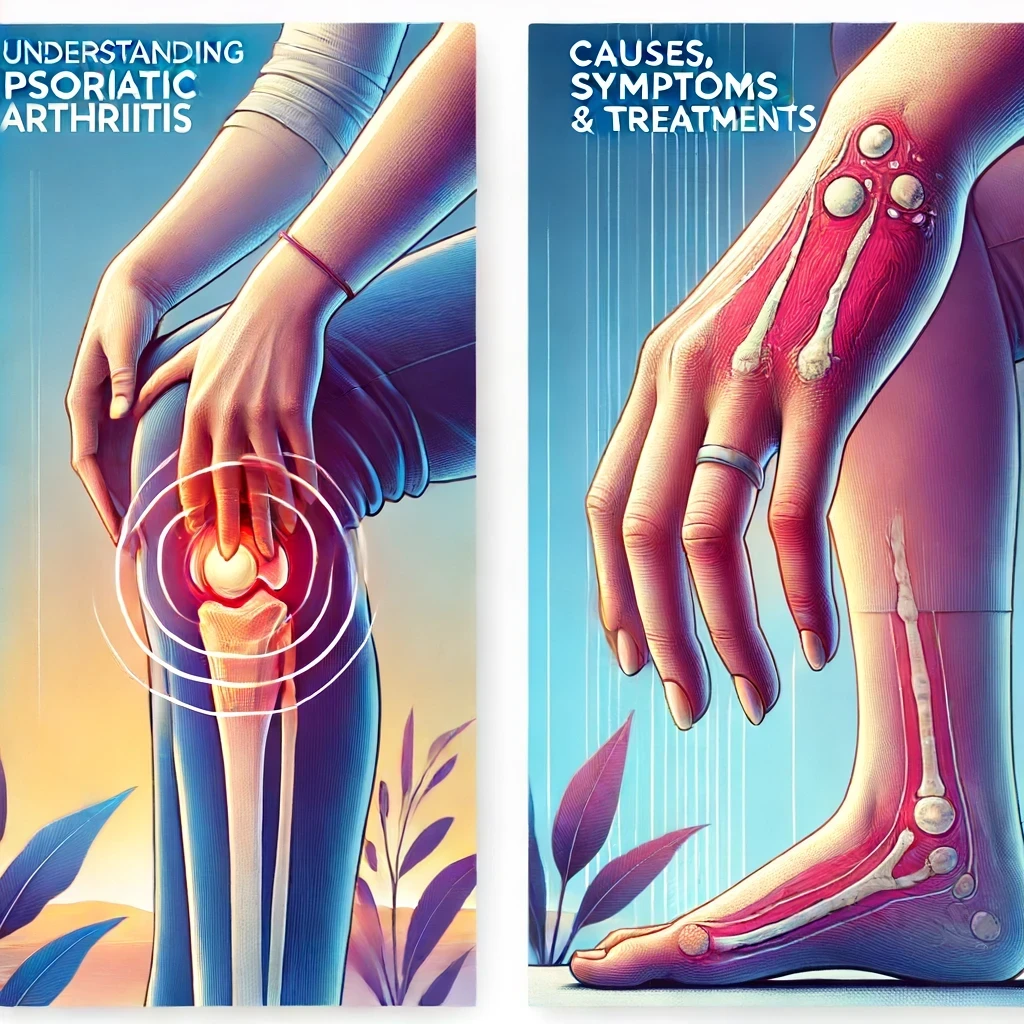
Table of Contents
Rheumatoid arthritis (RA) is a chronic inflammatory disorder that primarily affects joints but can also impact various systems in the body. It is essential to understand RA comprehensively to manage it effectively and maintain a good quality of life. This guide covers everything from symptoms and diagnosis to innovative treatments and lifestyle adjustments.
What is Rheumatoid Arthritis?
Rheumatoid arthritis is an autoimmune disease where the immune system mistakenly attacks the body’s tissues, causing inflammation in the joints. Unlike osteoarthritis, which results from wear and tear, RA leads to joint damage due to immune system malfunctions.
Causes and Risk Factors of Rheumatoid Arthritis
Genetic Factors
Genetics play a significant role in the development of RA. Specific genes can increase the likelihood of developing the disease, especially in families with a history of RA.
Environmental Triggers
Environmental factors, such as smoking, exposure to certain bacteria, and stress, can trigger RA in genetically predisposed individuals.
Autoimmune Mechanisms
In RA, the immune system attacks the synovium (the lining of the membranes that surround joints), causing inflammation that can lead to joint damage and deformity over time.
Symptoms of Rheumatoid Arthritis
Early Symptoms
- Joint pain and stiffness, often in the hands and feet
- Swelling and tenderness in the joints
- Morning stiffness lasting more than 30 minutes
Progression of Symptoms
- Persistent pain and swelling
- Decreased range of motion
- Fatigue and fever
Advanced Symptoms
- Joint deformities
- Erosion of bone and cartilage
- Involvement of other organs, such as the eyes, skin and lungs
Diagnosing Rheumatoid Arthritis
Physical Examination
Doctors assess symptoms such as joint swelling, tenderness and mobility during a physical examination.
Blood Tests
Blood tests for RA include checking for elevated erythrocyte sedimentation rate (ESR), C-reactive protein (CRP), rheumatoid factor (RF) and anti-cyclic citrullinated peptide (anti-CCP) antibodies.
Imaging Tests
X-rays, ultrasounds and MRIs can help assess joint damage and monitor the progression of RA.
Traditional Treatments for Rheumatoid Arthritis
Medications
DMARDs (Disease-Modifying Antirheumatic Drugs)
DMARDs slow the progression of RA and prevent joint damage. Methotrexate is one of the most commonly used DMARDs.
Biologic Agents
Biologic agents target specific parts of the immune system to reduce inflammation. Examples include TNF inhibitors like adalimumab (Humira) and etanercept (Enbrel).
NSAIDs and Steroids
NSAIDs and corticosteroids help manage pain and inflammation but are typically used for short-term relief.
Physical Therapy
Physical therapy helps maintain joint function and mobility through exercises and specialized treatments.
Lifestyle Modifications
Lifestyle changes such as maintaining a healthy weight, avoiding smoking, and managing stress can help control RA symptoms and improve overall health.
Innovative Treatments and Therapies
Targeted Synthetic DMARDs
Newer DMARDs target specific pathways in the immune system, providing more precise treatment options with fewer side effects.
JAK Inhibitors
JAK inhibitors, such as tofacitinib (Xeljanz), block specific enzymes involved in the inflammatory process, offering an alternative to biologic treatments.
Gene Therapy Prospects
Research into gene therapy aims to modify or replace faulty genes involved in RA, potentially providing a long-term cure.
Surgical Options for Severe Rheumatoid Arthritis
Synovectomy
Synovectomy involves the surgical removal of the synovium to reduce inflammation and pain in affected joints.
Joint Replacement
Knee Replacement
Knee replacement surgery can replace damaged joint surfaces with artificial components, relieving pain and restoring function in severe cases.
Hip Replacement
Hip replacement involves replacing the damaged hip joint with a prosthetic implant, significantly reducing pain and improving mobility.
Alternative and Complementary Therapies
Acupuncture
Acupuncture involves inserting thin needles into specific points on the body to relieve pain and improve joint function.
Herbal Supplements
Herbs such as turmeric, ginger and boswellia have anti-inflammatory properties that may help manage RA symptoms.
Mind-Body Techniques
Mind-body practices like yoga, tai chi and mindfulness meditation can help reduce stress and improve pain management.
Diet and Nutrition for Rheumatoid Arthritis
Anti-Inflammatory Diets
Eating a diet rich in anti-inflammatory foods such as omega-3 fatty acids, fruits and vegetables can help reduce inflammation.
Foods to Avoid
Limiting processed foods, sugars, and trans fats can prevent inflammation and manage symptoms.
Nutritional Supplements
Supplements like omega-3 fatty acids, vitamin D and probiotics may support joint health and reduce inflammation.
Managing Rheumatoid Arthritis Pain
Pain Management Techniques
Pain management strategies include heat and cold therapy, TENS and massage to alleviate symptoms.
Role of Stress Reduction
Reducing stress through relaxation techniques, hobbies and social support can help manage RA symptoms.
Exercise and Rheumatoid Arthritis
Types of Beneficial Exercises
Exercises such as strength training, flexibility exercises, and aerobic activities can help manage RA symptoms and improve joint function.
Exercise Tips for RA Patients
Gradually increasing exercise intensity, using proper techniques, and listening to your body’s signals can help prevent injury and maximize benefits.
Living with Rheumatoid Arthritis
Daily Living Aids
Using assistive devices like canes, shoe inserts, and braces can make daily activities easier and reduce joint stress.
Coping Strategies
Adapting coping strategies such as pacing activities, practicing relaxation techniques and seeking support can improve quality of life.
Preventing Rheumatoid Arthritis Flare-Ups
Early Intervention
Early diagnosis and treatment can slow the progression of RA and improve outcomes.
Long-Term Management Strategies
Long-term strategies such as maintaining a healthy lifestyle, staying active and managing weight can help prevent RA flare-ups.
Conclusion
Rheumatoid arthritis can significantly impact quality of life, but with the right approach, it is possible to manage symptoms and maintain an active, fulfilling lifestyle. By understanding the various treatment options, including innovative solutions, you can make informed decisions and find lasting relief from rheumatoid arthritis.
FAQs
What are the early symptoms of rheumatoid arthritis?
Early symptoms include joint pain, stiffness and swelling, often in the hands and feet.
How is rheumatoid arthritis diagnosed?
RA is diagnosed through physical exams, blood tests for inflammation markers and imaging tests like X-rays and MRIs.
What are innovative treatments for rheumatoid arthritis?
Innovative treatments include targeted synthetic DMARDs, JAK inhibitors and potential gene therapy.
Can diet affect rheumatoid arthritis?
Yes, consuming an anti-inflammatory diet and avoiding processed foods can help manage RA symptoms.
What exercises are beneficial for rheumatoid arthritis patients?
Beneficial exercises include strength training, flexibility exercises and low-impact aerobic activities like swimming and walking.




One thought on “Ultimate Guide to Rheumatoid Arthritis: Understanding, Managing and Living Well”